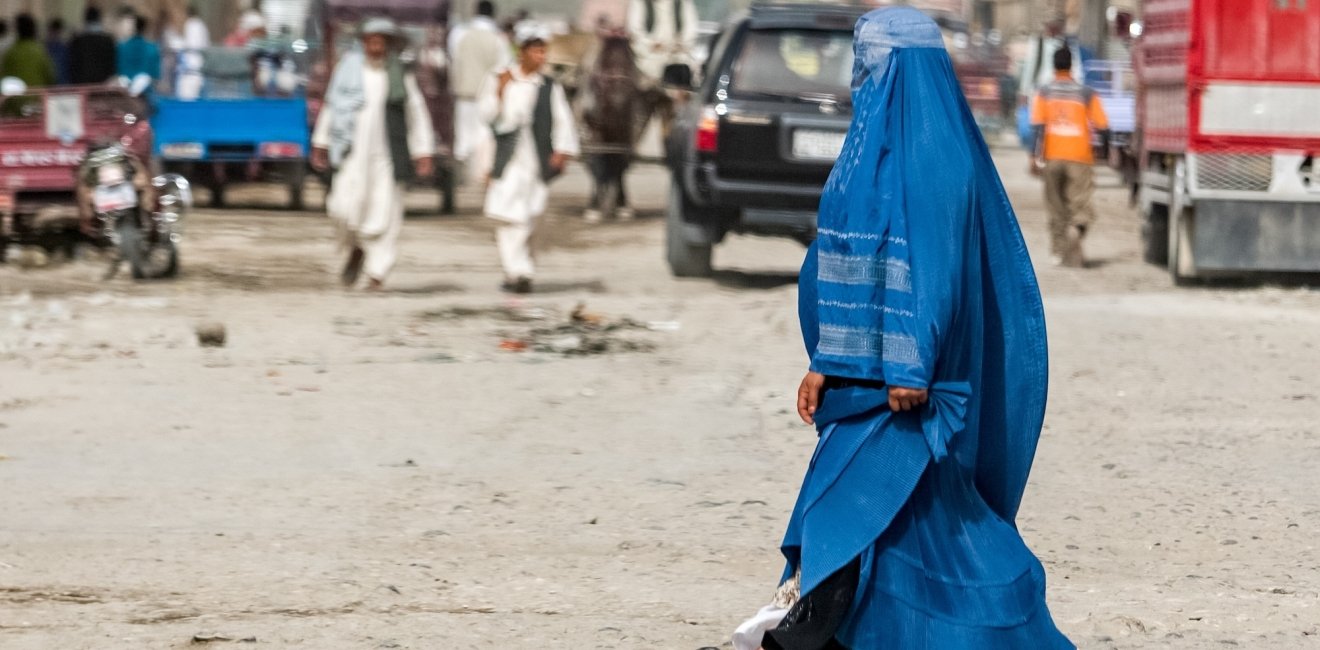
A blog of the Middle East Women's Initiative
However, patriarchy is not unique to Afghanistan; it is a common thread that connects women’s oppression all over the world.
“The most common way people give up their power is by thinking they don’t have any.” - Alice Walker
In Afghanistan, patriarchy is a brutal force that crushes women’s spirits. It is a constant presence, like a dark cloud that casts a shadow over everything. It is erasing their very existence and their voices, dreams, and hopes. However, patriarchy is not unique to Afghanistan; it is a common thread that connects women’s oppression all over the world. In other countries, patriarchy is more sneaky and deceptive.
Personal reflections
As a young girl in Afghanistan, I was haunted by questions that pierced my heart. Why did my country treat women as if they were worthless and inferior to men? Why did I witness women who were intelligent and talented but still regarded as second-class citizens? Why did I question my abilities whenever I encountered a difficulty in my studies?
I was a child of eight when I witnessed a scene that baffled me. The year was 2004, and my mother and I had gone to a tailor in our town to buy some clothes for my father and brother. The shopkeeper was struggling with his calculator, and my mother offered to help. She took a piece of paper and a pen and wrote down the prices of the fabrics. Then, she added them up with ease. She had gone to school and learned how to do arithmetic without a machine. But the people in the shop gasped and stared. How could a woman write? That was not something women were supposed to do. I wondered why.
As I entered my teenage years, I was bombarded with messages from religious authorities and society that women were inferior, irrational, and sinful. Women needed to be dominated and guarded by men. Women had no right to go out alone, make their own choices, or pursue their dreams. Women were like children, or even worse. I still remember the Imam’s sermon one Friday when I was 14. He said that women had a tendency to dishonor themselves and their families and that they should not be trusted with their own well-being. I felt a surge of shock and anger. I thought of myself, my mother, and other women I knew who were not like that. I thought of a male relative who was clearly less intelligent than me but who had more freedom and respect. I started to question the validity of what I had been told.
Growing up in Afghanistan, I always wondered why I had to wear a burqa. Why did I have to cover myself from head to toe while men could walk freely? Why did I have to obey their rules when they could do whatever they wanted? I thought this question was only reserved for me, but I was wrong. This was a question that connected women across the world, across cultures and religions. A question that challenged the entire system of patriarchy.
It took me years of hard work and self-reflection to overcome the doubts and fears that had been planted in my mind. I had to prove to myself, over and over again, that I was not stupid, that I was not inferior, that I was not worthless. I had to fight against the voice in my head that told me I could not do something because I was a woman. I had to learn to trust my own abilities and judgment. I had to realize that the problem was not with me but with the patriarchal system that oppressed my thoughts.
Patriarchy as a global phenomenon
Patriarchy is not natural. It is not inevitable. It is not something we are born with. It is something we are taught, something we inherit. It is a system that has been created and maintained by historical events, such as the rise of states, the development of agriculture, the influence of religion, and the impact of colonialism. It is a system that has been justified and normalized by biological or psychological differences between men and women. It is a system that has oppressed and exploited women for centuries.
Patriarchy is a problem that blinds us all. It blinds women from seeing their own worth and potential. It blinds society from seeing the diversity and richness of its people. It blinds humanity from seeing the truth and beauty of the world in its full actuality. We are living in a half-blind world where only one eye is open, and the other is shut. We need to ask ourselves: how are we contributing to this blindness? How are we resisting it? How are we opening our eyes and helping others to do the same? Only then can we see the world with both eyes, clearly and freely.
But patriarchy is also an accident. An accident that can be corrected. An accident that should not define our future. Our societies can be formed in so many ways, and this patriarchal way is one of them. It can change. We can change it. We can imagine a world of equality. We can work for it. We can make it happen.
The views expressed in these articles are those of the author and do not reflect an official position of the Wilson Center.
Author

Co-Author, Defiant Dreams

Middle East Program
The Wilson Center’s Middle East Program serves as a crucial resource for the policymaking community and beyond, providing analyses and research that helps inform US foreign policymaking, stimulates public debate, and expands knowledge about issues in the wider Middle East and North Africa (MENA) region. Read more

Explore More in Enheduanna
Browse Enheduanna
Women are the Catalysts for Change in Lebanon

How Education Can Empower Young Women in MENA


